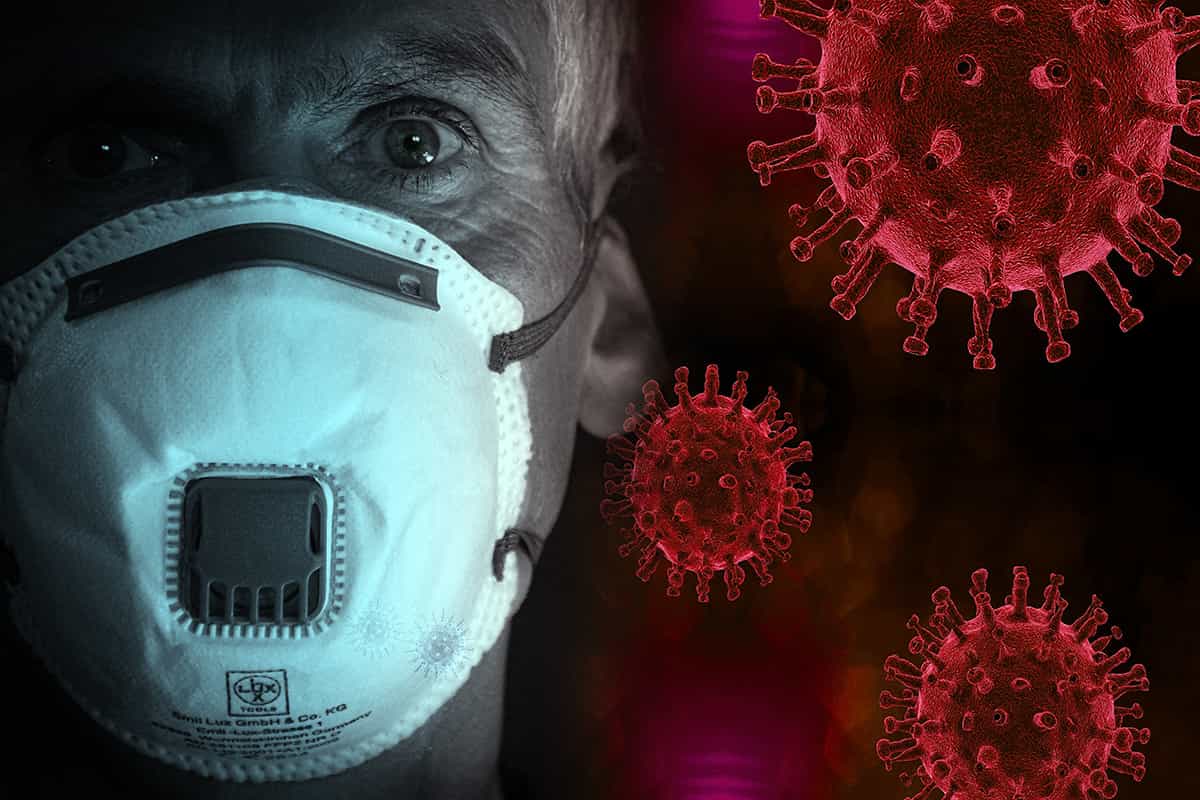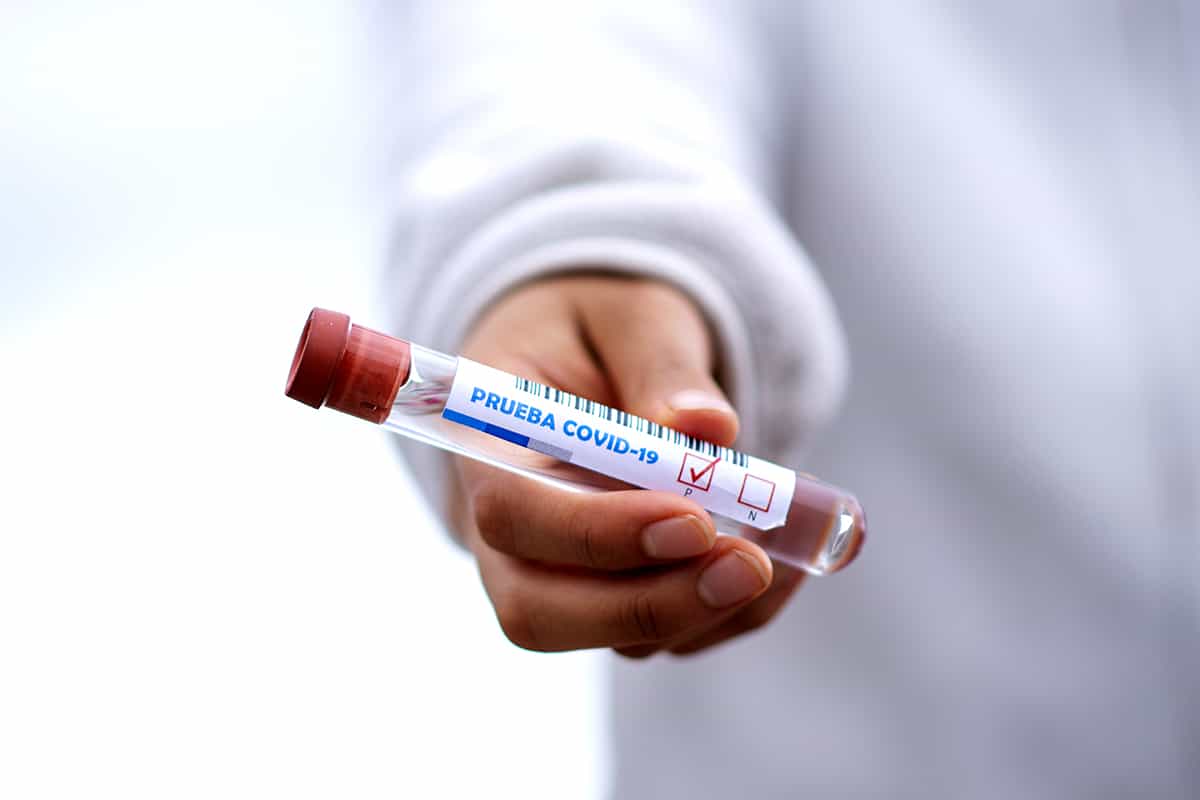CLOSE![]()
Public health officials warn that the current blood tests for the coronavirus on the market are creating confusion among patients and doctors. (April 13)
AP Domestic
A new type of coronavirus test expected to offer clarity on how and when to reopen the nation has instead sowed confusion.
A blood test that can detect whether a person’s had the virus has been heralded as an important tool for policymakers. Not only would it help answer critical questions such as how widespread it is, the test would inform them when people can safety return to work or school and not worry about becoming ill.
But hopes for quick answers have been dashed as a lack of evidence raises questions about the accuracy and reliability of a wide swath of antibody tests now being marketed to hospitals, doctors and consumers.
Public health experts are questioning the precision of antibody tests now being deployed in communities nationwide. And they warn elected officials, business leaders and consumers should be careful about making decisions based on test results.
Unproven tests. Inaccurate results: Public health labs worry ‘bad data’ could taint US recovery from coronavirus crisis.
Colin West is a Mayo Clinic internal medicine doctor and professor who has tracked the accuracy of COVID-19 tests.
“We need to stop pretending the tests are perfect,” West said. A person who gets tested should not “suddenly stop wearing a mask or stop washing their hands. Or stop physically distancing.”
The problem, West said, is tests don’t have evidence to prove they are good enough to ease policies on social distancing.
“Hopefully we will get there at some point,” he said. “Right now, it feels premature.”
No ‘immunity passports,’ WHO warns
Also called serology tests, these blood tests are designed to detect whether a person has developed antibodies to fight off SARS-CoV-2, the virus that causes COVID-19. The antibodies are typically not detectable until two weeks after a person is infected. The tests are different from the molecular “PCR” tests used to diagnose COVID-19.
While researchers theorize antibodies protect people from a second infection, there’s no guarantee how long protection might last or whether it’s completely effective. It will take time to collect enough information from studies to answer these questions.
Last week, the World Health Organization warned against issuing “immunity passports” to people who believe they are safe based on positive antibody tests. In a statement, the WHO said there’s no evidence those who recover from COVID-19 and develop antibodies will be immune from a follow-up infection.
Labs are testing 100,000 people each day for coronavirus: That’s still not enough.
A recent, preliminary study by researchers from the University of California San Francisco, University of California Berkeley and Chan Zuckerberg Biohub evaluating a dozen antibody tests found accuracy rates varied widely. The study has not been peer-reviewed.
And officials with the Association of Public Health Laboratories also have warned antibody tests on the market are unproven and might produce inaccurate results. The group has called for stricter oversight from the Food and Drug Administration.
The FDA has allowed antibody test makers to sell their products without the normal step of filing data validating test accuracy. More than 100 test makers have notified the FDA of plans to market antibody tests. The companies or labs cannot claim the FDA authorized the tests and must include disclaimers that they might falsely conclude whether a person had a prior infection.
FDA Commissioner Stephen Hahn said the policy allowing antibody tests on the market before the agency has reviewed data aims to balance risks and benefits to meet the “urgent public health needs” of the new virus. As of Thursday, the FDA had reviewed and authorized antibody tests from eight companies or labs.
After concerns were raised about the accuracy of antibody tests, the FDA teamed up with the National Cancer Institute, National Institute of Allergy and Infectious Diseases and the Centers for Disease Control and Prevention to evaluate them. The FDA will post data from the review “at a future date,” an agency spokeswoman said Thursday.
‘The opportunity was missed’: Feds strive to speed up coronavirus testing after CDC’s slow start
Experts said the FDA likely felt pressure to quickly allow antibody testing after it took several weeks to authorize commercial labs to perform diagnostic tests during the early weeks of the pandemic.
“The FDA was behind the eight-ball when it came to early diagnostics,” said Peter Pitts, a former FDA associate commissioner and co-founder of the Center for Medicine in the Public Interest. “Not surprisingly, they didn’t want to get burned twice.”
West said it’s important to acknowledge and account for the shortcomings of antibody tests. Using them to inform decision-making is “really only as effective as the test is accurate.”
“We need to build their imperfections into our models and into our public policies,” West said.
‘Enormous enthusiasm for these tests’
Tom Inglesby is director of the Center for Health Security at Johns Hopkins Bloomberg School of Public Health in Baltimore.
He said the flood of antibody tests available to doctors and consumers has created confusion. The FDA’s stance has allowed “sub-optimal tests” and made it difficult to evaluate and compare results. He cited community surveys done in New York City and Santa Clara County, California, as examples of the difficulty of comparing results.
In New York, the nation’s hardest-hit state, health workers tested volunteers at grocery stores. Nearly 14% tested positive for antibodies for the novel coronavirus. In New York City, about one in five tested positive for coronavirus antibodies.
What we know about remdesivir. It’s the experimental drug being tested as a coronavirus treatment
Stanford University researchers tested 3,300 people in Santa Clara County and found 1.5% tested positive for antibodies. The researchers estimated 48,000 to 81,000 people had been infected by early April.
The scientific rigor of both surveys and a third in Los Angeles were widely debated among public health experts who questioned how populations were selected and the accuracy of the tests.
“We don’t really know exactly how precise it is in terms of false positives, false negatives, not to mention that we don’t know whether it truly represents immunity,” Inglesby said. “There’s enormous enthusiasm for these tests, obviously, because people want to know” whether they have been infected.
Because shortages made diagnostic testing hard to get during the early months of the pandemic, many are seeking antibody tests to answer whether they recovered from COVID-19.
Health and business leaders also want the tests to answer whether employees can return to work with some level of immunity.
Could heartburn drug famotidine be used to treat coronavirus? The theory is trending online, but there’s no data to support it.
Beaumont Health in Michigan announced ambitious plans to test blood samples from 38,000 employees and others to gauge infections. The tests are voluntary, but the large health system wants to discover whether health workers are susceptible to infection and whether antibodies protect workers and others from a second infection.
Hospital systems such as Cedars-Sinai in Los Angeles are taking a different approach. It is working to validate commercial tests before offering testing to the public, said Dr. Rekha Murthy, an infectious disease specialist and associate chief medical officer.
“We need to allow science to drive our decision-making,” Murthy said.
Still, diagnostic companies are offering consumers a chance to get tested. Quest Diagnostics on Tuesday said consumers can get a COVID-19 antibody test without a doctor’s referral. The cost is $119. Quest’s competitor, LabCorp, requires consumers get an order from a doctor or health provider for its antibody test.
Inglesby said the initial problems with antibody tests are fixable, but it will take time “to have the right controls in place to be able to make correct, scientifically accurate statements.”
False positives skew antibody results
Lab experts say an important part of evaluating antibody tests is ensuring they are accurate enough to detect COVID-19. Equally important, tests must be specific enough to not detect other viruses.
Simple antibody tests targeting COVID-19 might cross-react with other pathogens, such as the coronavirus that causes the common cold. This will create “false positives” for tests that are supposed to detect antibodies that counter the COVID-19 virus.
Dr. Geoffrey Baird directs the clinical laboratory at Harborview Medical Center in Seattle. He said lab experts’ concerns rest with rapid “point of care” or “lateral flow” tests that might be more susceptible to such “false positive” results.
Fact check: Are coronavirus patients dying alone in hospitals?
Similar to pregnancy tests, these tests quickly provide results but might not provide accurate enough specificity to exclude other pathogens.
If a test with a 95% specificity rate was administered to 100 people, it would produce five false positive results. If the real rate of infection is 1%, that means only one person out of 100 would be infected. Such a test would detect one real infection and five “false positive” infections.
Baird said such inaccurate testing could misinform decision-makers about critical things like fatality rates of COVID-19. More “false positive” tests could dramatically skew results, Baird said.
“It may cause you to erroneously believe that the fatality rates was much lower because you had many cases but few people died,” said Baird, acting chair and professor of Laboratory Medicine at the UW Medicine.
West said questions about antibody testing accuracy are not meant to undermine the usefulness of the tests. The key is to balance the speed of testing while ensuring the accuracy science demands to produce useful results.
“We are dealing with a pandemic that demands rapid action,” West said, “but developing a robust evidence base with rigorous methodology is not a rapid process.”
Autoplay
Show Thumbnails
Show Captions
Read or Share this story: https://www.usatoday.com/story/news/health/2020/04/30/coronavirus-antibody-tests-immunity-mayo-clinic-who/3038740001/









One thought on “Antibody tests were supposed to help guide US reopening plans. They’ve brought more confusion than clarity amid coronavirus.”